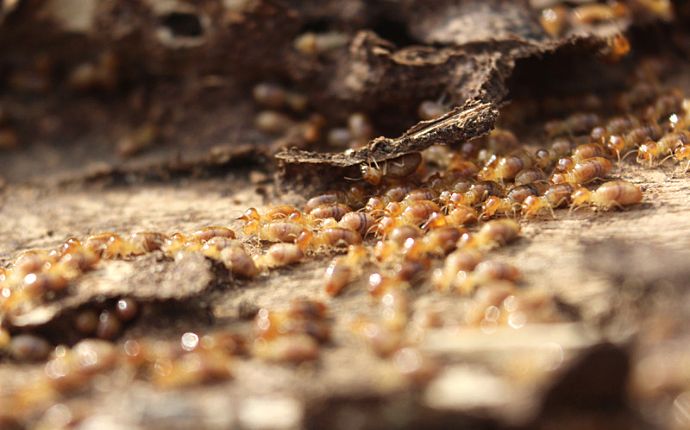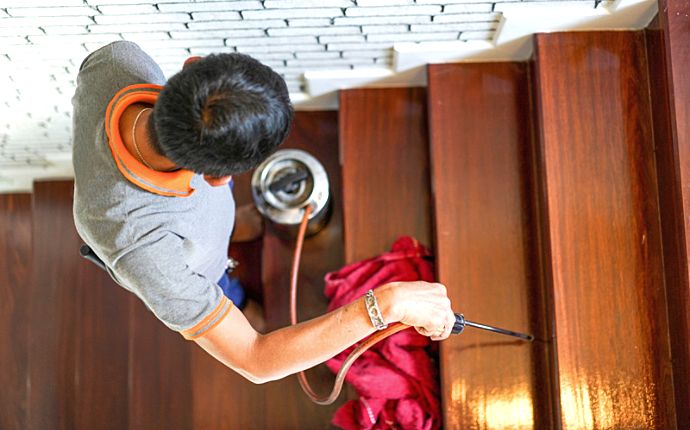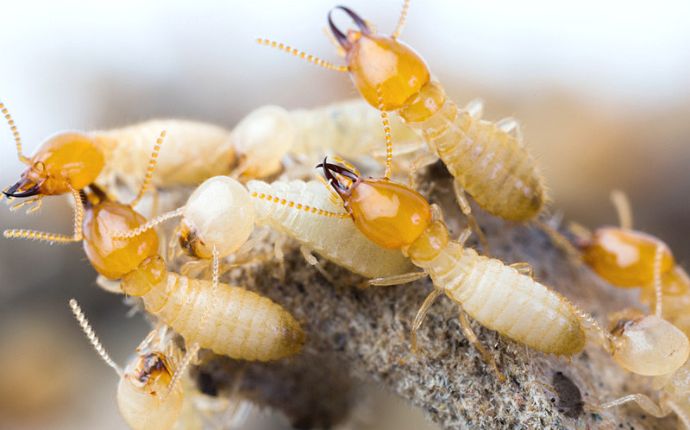If you own a home or are in the process of buying one, then you may already understand how vital a termite inspection is. Inheriting a house with hidden problems is a fear that can become a reality. Termites are among the most destructive pests in terms of structural damage. They often go unnoticed until the situation has become a total infestation.
Termites work 24 hours a day to eat through any wood they can find, including the wood in your home and wood mulch. A termite meal can mean the destruction of home foundations, support beams, and anything else in their way.
In many real estate purchase contracts, there is a clause covering wood-destroying pests. Understanding the terms of your agreement is crucial because it determines who pays for a termite inspection.
Why Is a Termite Inspection Important?
Termite inspections and preventative services can keep your home free of these pests. A “termite letter” might be required in some real estate transactions. Termite letters detail any termite presences or damage to the home from termites. The report may contain information on other wood-damaging organisms, as well.
There are types of home loans that require a termite inspection before closing. Veteran’s Administration (VA) and Federal Home Administration (FHA) Loans are two examples. For new home buyers, getting a termite inspection done before closing can save on costly repairs in the future.
Termites damage more than half a million homes every year, causing about $5 billion in damages. Inspections, maintenance, and preventative treatments reduce the chances of termite damage. Having an inspection done can help you find issues when they are small instead of when there is a severe infestation.
Who Pays for the Inspection?

The average cost of a termite inspection is around $100. This cost will vary based on the size of the property. There may be an additional fee for the termite letter, as well. Some companies even offer free inspections if you sign up for preventative services.
It is common for the seller to cover the cost of inspections. If the buyer covers the inspection cost, they can factor the amount into negotiations on the price of the house.
If the buyer does cover the cost, they can request a more detailed inspection to determine if the home is prone to termite infestation. They may also take this opportunity to establish a relationship with a service provider. This way, they can prevent infestations and damages in the future.
Who Pays for the Treatment?
Following the inspection, the pest control company will go over the signs of activity from current or past termites or other wood-destroying insects. The “Termite Letter” or termite inspection report will outline any issues found. It will also include the necessary steps before the home sale.
According to some reports, covering treatment costs can mean paying between $1,300 and $3,000. Treatment can cost more, however, depending on the extent of the damage already done.
If there is no active infestation or damage, the cost of preventative treatment will fall on the buyer. Preventive maintenance includes moving bark away from the home or any preventative treatments.
The seller will typically pay to treat an active infestation or to repair wood damage. Proof of treatment is often required and provided before the completion of the sale. There are exceptions to this with an “As Is” property sale.
Termites and an “As Is” Property Sale

“As Is” home sales are real estate transactions in which the seller has established that they have no intention of changing the current condition.
“As Is” is not a free pass to hide issues with the property. Instead, the seller reveals all flaws they find in the home. The buyer then agrees to purchase the property under those conditions.
Real estate disclosure laws have been enacted in many areas to require sellers to disclose issues with the home for buyer protection. Failure to disclose the problems may result in lawsuits or reversal of sale.
Many banks are hesitant to provide loans to cover a property sold “as is.” VA loans, FHA Loans, and USDA Loans all require the structure to be sound.
Buyers can still get inspections for an “As Is” sale to reveal any issues that the seller has not disclosed. A termite inspection can still be completed. It just means that the seller might not conduct any treatment.
Sellers can have pest inspections done before listing the home to be aware of any issues before sale offers. Inspections on “As Is” properties will allow for better planning after the sale closes.
Professional Termite Inspection and Treatment
A termite inspection will help you plan suitable treatments to protect your property. Our certified termite inspectors will note any past and current termite activity and include it in a report. Call us now to schedule a termite inspection and get your termite letter today!




